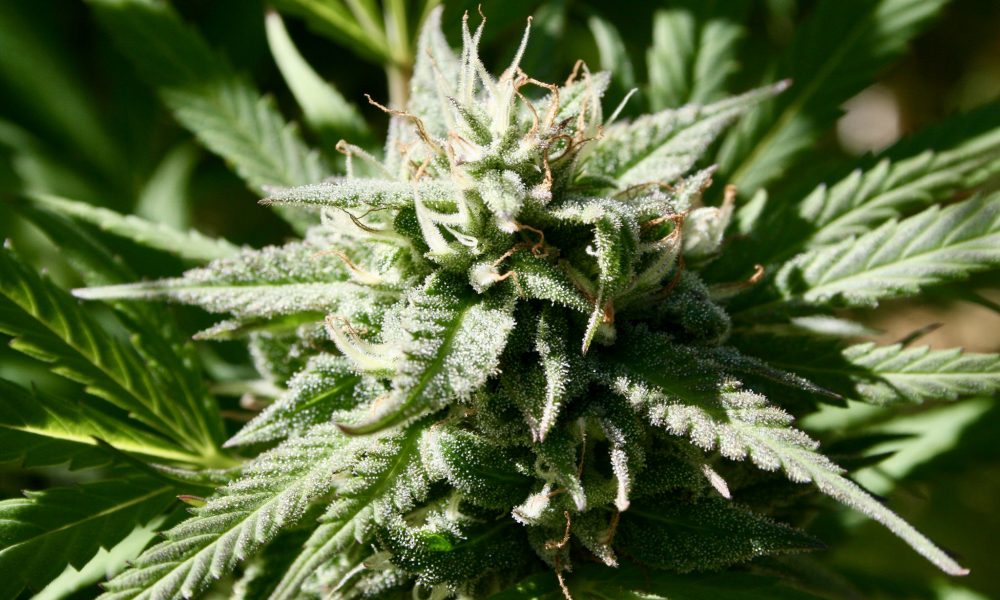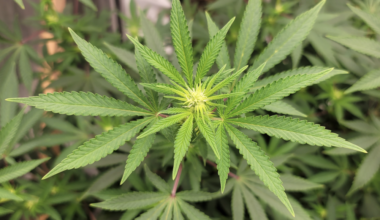Maryland elections officials have finalized the language for a marijuana legalization referendum that will appear on the November ballot, and have issued a formal summary of the reform proposal.
The legislature approved two cannabis measures in April—one to put the question of legalization to voters as a constitutional amendment on the ballot and a complementary measure that will lay out the implementation framework if voters approve the initiative.
The ballot bill didn’t require action from Gov. Larry Hogan (R). He let the other measure take effect without his signature.
Last week, Maryland Secretary of State John Wobensmith (R) certified the final text of the cannabis measure, designated as Question 4, that will go before voters:
“Do you favor the legalization of the use of cannabis by an individual who is at least 21 years of age on or after July 1, 2023, in the State of Maryland?”
While the question itself is fairly straightforward, the legislature’s non-partisan Department of Legislative Services also recently published a summary of each of the questions that will appear on the ballot, including the cannabis measure. It gives context to the proposed reform and describes its relationship to the separate implementation legislation.
Legalization would be “subject to a requirement that the General Assembly pass legislation providing for the use, distribution, possession, regulation, and taxation of cannabis within the State,” summary, which was also approved by the attorney general’s office, says, before detailing the provisions of the complementary HB 837 as well as laying out what the state’s current marijuana laws are.
“Eighteen other states have legalized recreational cannabis use by adults,” the summary notes. “A total of 37 states regulate cannabis for medical use by qualified individuals. Maryland has had a medical cannabis program in place since 2014.”
Del. David Moon (D) promoted the marijuana legalization ballot question on Twitter, urging Maryland residents to register to vote or request an absentee ballot.
If you want to vote “for” Question 4 (Maryland marijuana legalization), you can register to vote & request an absentee ballot online for the TUE 11/8 referendum: https://t.co/UyXkrzeTnf
— David Moon (@DavidMoon2014) August 6, 2022
Under the law that would be enacted if voters approve legalization at the ballot, the purchase and possession of up to 1.5 ounces of cannabis would be legal for adults. The legislation also would remove criminal penalties for possession of up to 2.5 ounces. Adults 21 and older would be allowed to grow up to two plants for personal use and gift cannabis without remuneration.
Past convictions for conduct made legal under the proposed law would be automatically expunged, and people currently serving time for such offenses would be eligible for resentencing. The legislation makes it so people with convictions for possession with intent to distribute could petition the courts for expungement three years after serving out their time.
The legalization bill was amended throughout the legislative process. For example, language was attached to create a community reinvestment fund and allow state tax deductions for certain cannabis-related expenses that marijuana businesses are barred from claiming under current federal tax code.
—
Marijuana Moment is tracking more than 1,500 cannabis, psychedelics and drug policy bills in state legislatures and Congress this year. Patreon supporters pledging at least $25/month get access to our interactive maps, charts and hearing calendar so they don’t miss any developments.![]()
Learn more about our marijuana bill tracker and become a supporter on Patreon to get access.
—
If voters pass the referendum question, the reform wouldn’t take effect immediately. Possession of small amounts of cannabis would become a civil offense on January 1, 2023, punishable by a $100 fine for up to 1.5 ounces, or $250 for more than 1.5 ounces and up to 2.5 ounces. Legalization for up to 1.5 ounces wouldn’t kick in for another six months.
Advocates took issue with that protracted timeline. Having possession legalization take effect sooner was among several asks they made that were not incorporated into the legislation. For example, activists also wanted lawmakers to include a provision preventing police from using the odor of marijuana alone as the basis for a search.
Del. Luke Clippinger (D), who sponsored both the ballot question and implementation legislation, also serves as the chair of the Maryland House Cannabis Referendum and Legalization Workgroup, which met regularly to take initial steps to prepare to pass marijuana legislation.
The panel, formed by House Speaker Adrienne Jones (D), discussed licensing and regulatory issues at its meetings, with members hearing expert testimony on the current marijuana policy landscape to help inform their approach in the future.
Clippinger said at one meeting that it was important for members to “prioritize equity in our efforts and ensure that we were recognizing and addressing the impact the war on cannabis has inflicted, particularly on brown and Black communities.”
Adult-use legalization began to advance through Maryland’s legislature in the 2021 session, but no votes were ultimately held. The Senate Finance Committee held a hearing last year on a legalization bill, which followed a House Judiciary Committee hearing on a separate cannabis proposal.
A poll released last year found that the state’s residents are on board with the policy change. Two-thirds (67 percent) of Marylanders now back legalizing cannabis, according to a Goucher College survey. Just 28 percent are opposed.
Maryland legalized medical marijuana through an act of the legislature in 2012. Two years later, a decriminalization law took effect that replaced criminal penalties for possession of less than 10 grams with a civil fine of $100 to $500.
Meanwhile, the governor separately allowed a bill to create a state fund to provide “cost-free” access to psychedelics like psilocybin, MDMA and ketamine for military veterans suffering from post-traumatic stress disorder (PTSD) and traumatic brain injury to take effect without his signature this year.
SXSW Opens Voting On Nearly 100 Marijuana And Psychedelics Panels For 2023 Festival
Photo courtesy of Brian Shamblen.
Medical Disclaimer:
The information provided in these blog posts is intended for general informational and educational purposes only. It is not a substitute for professional medical advice, diagnosis, or treatment. Always seek the advice of your physician or other qualified healthcare provider with any questions you may have regarding a medical condition. The use of any information provided in these blog posts is solely at your own risk. The authors and the website do not recommend or endorse any specific products, treatments, or procedures mentioned. Reliance on any information in these blog posts is solely at your own discretion.







